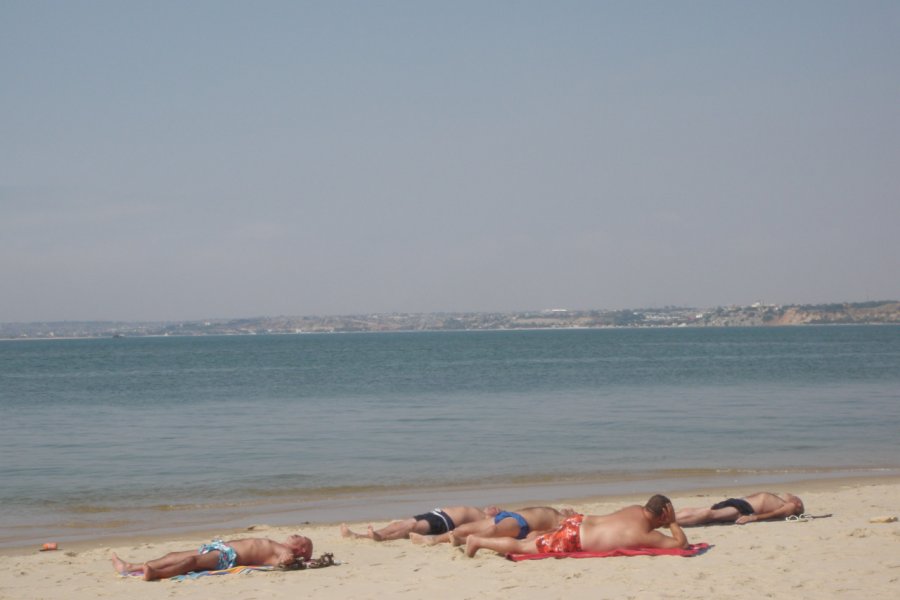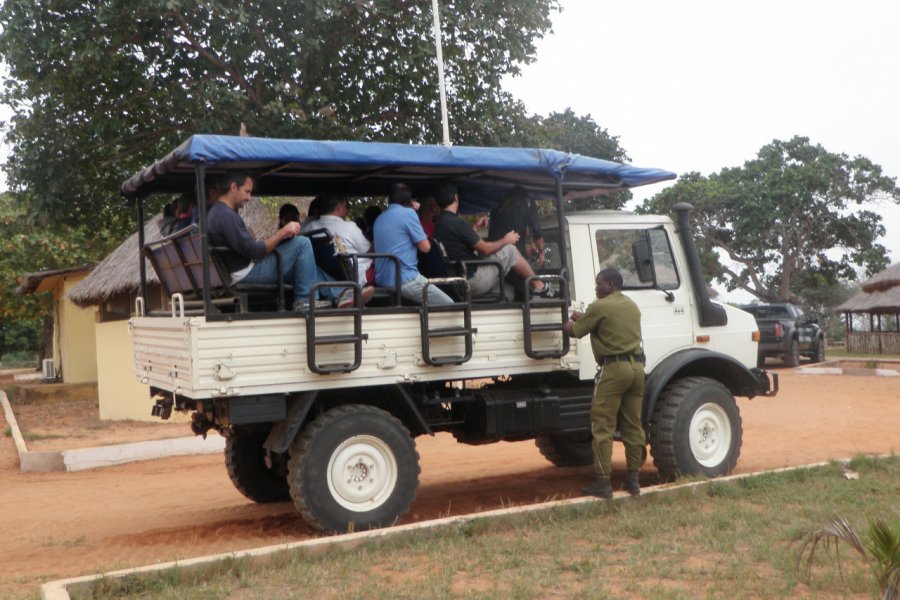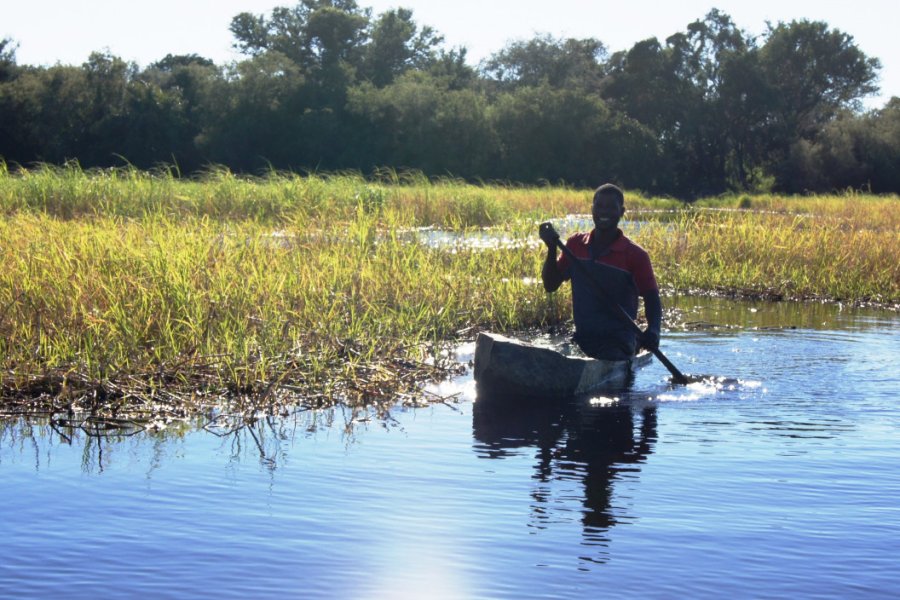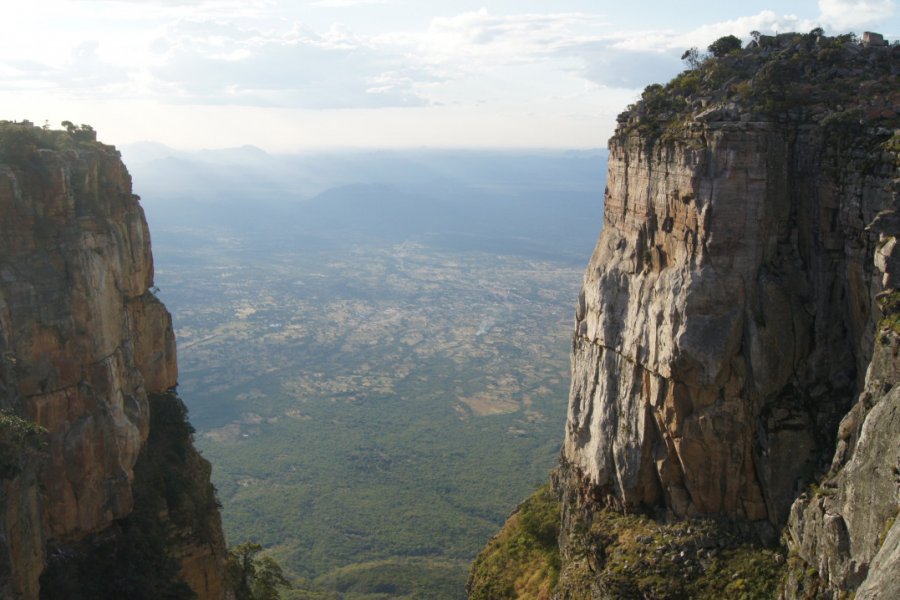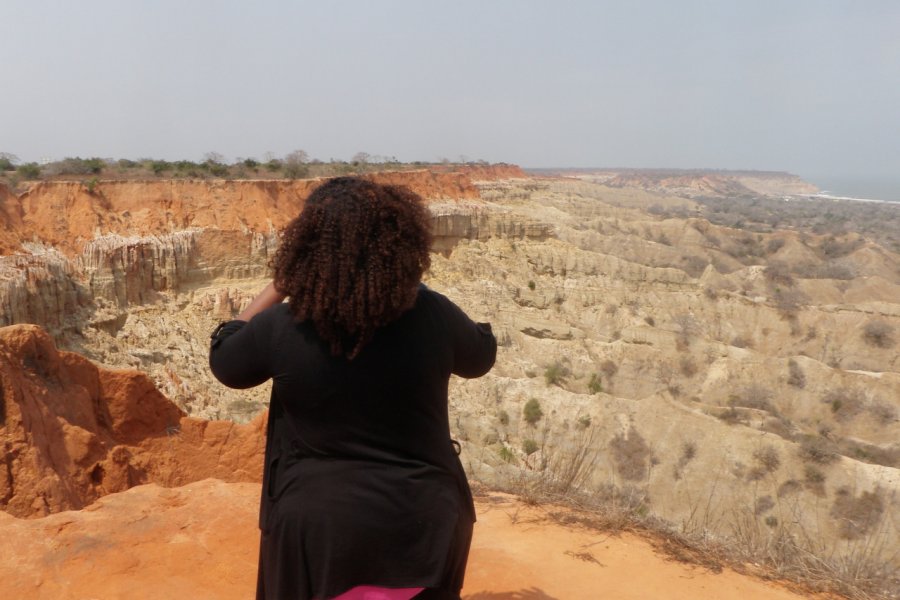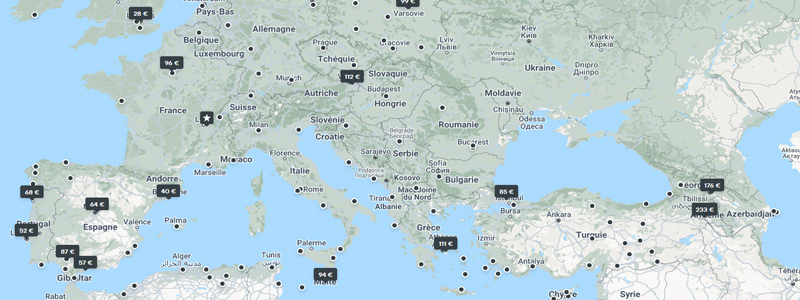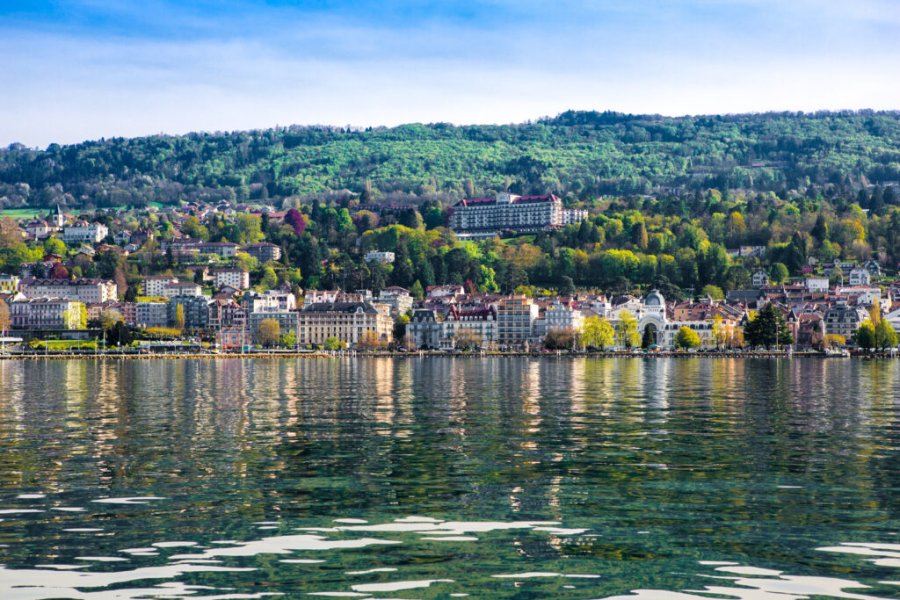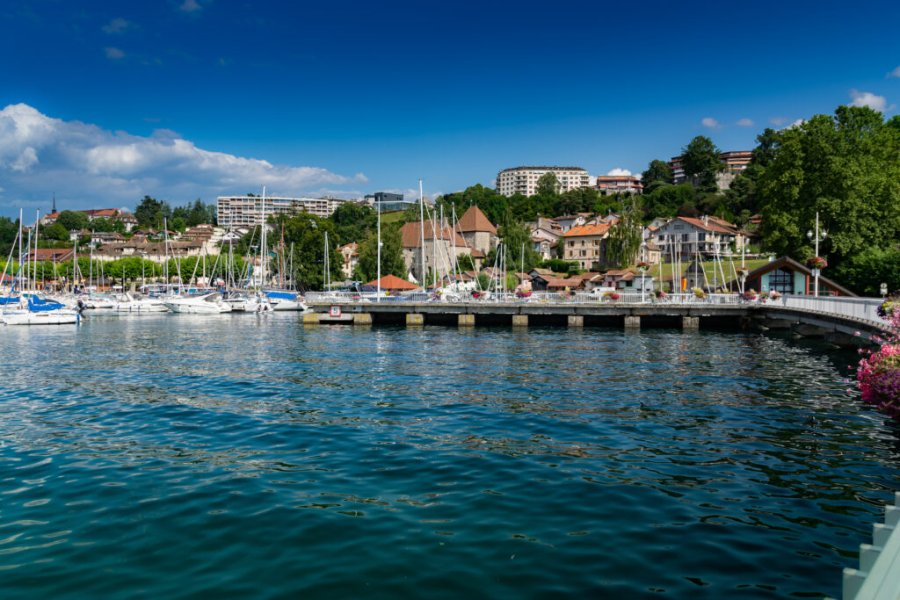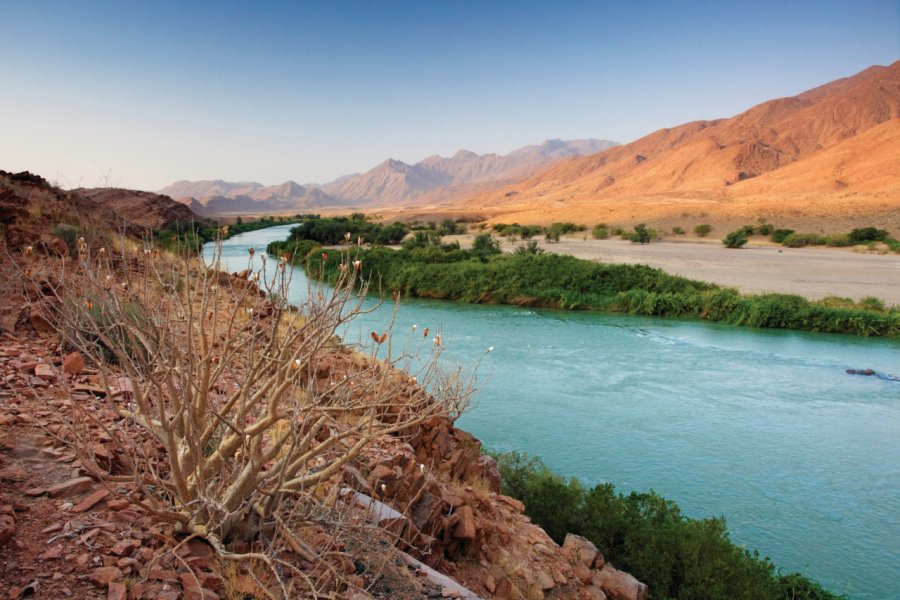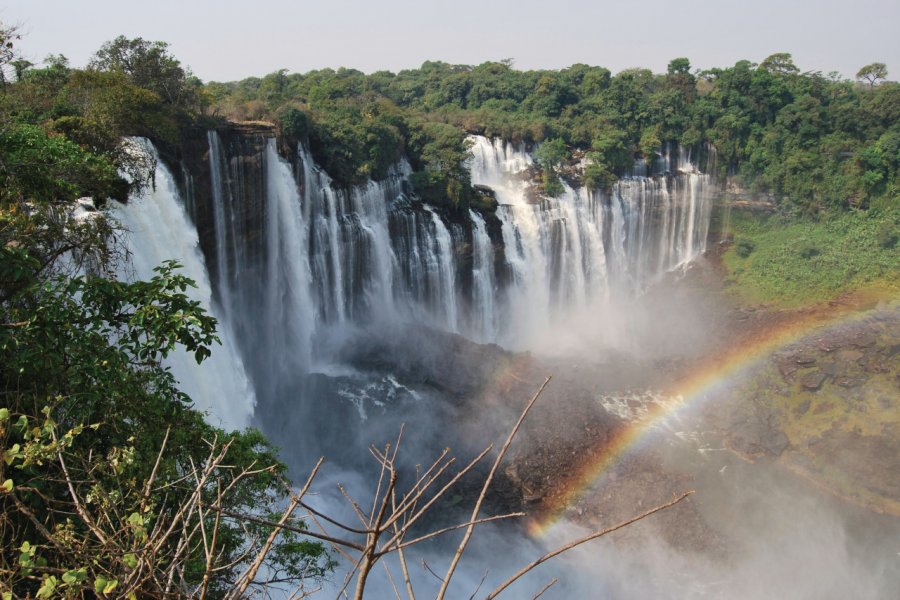Travel Guide Angola
Angola, a republic in south-west Africa, stands out for its rich mix of cultures and landscapes. Nestled between Namibia, Zambia and the Congos, its exoticism is undeniably seductive. Explore a nation where history, nature and culture are intertwined with discovery.
Angola's beauty stretches from the azure Atlantic coastline to the far reaches of the inland savannah. Luanda, the capital, is a dynamic metropolis where the Portuguese colonial past blends with an effervescent modernity. Ancient fortresses stand alongside futuristic skyscrapers and the best places to sleep.
Beyond Luanda, nature awakens. Kisama National Park is a sanctuary for wild animals, where elephants and zebras live side by side. Angola is also home to the mysterious Namib Desert, whose eternally changing red sand dunes offer a breathtaking spectacle.
Let yourself be seduced by the Kalendula waterfalls and the immaculate beaches of Lobito, where the turquoise waters of the Atlantic contrast perfectly with the golden sands. The seabed is teeming with fascinating marine life.
Angola is also an encounter with an exciting and diverse culture, to be discovered during visits to the most beautiful sites. From the bewitching rhythms of Kizomba to the age-old traditions of the Mucubal fishermen, every experience is a plunge into the deepest soul of Angola. Angolan cuisine, a fusion of African, Portuguese and Brazilian flavors, is a culinary journey to be experienced in Angola's finest restaurants. Come and discover this authentic and welcoming African nation, and be overwhelmed by its beauty.
What to visit Angola?
Suggested addresses Angola
When to go to Angola?
When to go to Angola is a pertinent question. Located in the heart of south-west Africa, Angola is a land of contrasts, where each season tells a different story. If you're wondering "When to go to Angola", here are a few guidelines to help you make your choice:
January to April : the rainy season rolls out its carpet of greenery over the country. Despite this, it's not without its charms. While the humidity is at its peak, nature is awakening. This is the time of year when wildlife is at its most active, a spectacle for nature lovers. However, this season requires a certain amount of preparation, especially to cope with the heat. Some roads, affected by rainfall, may also become less accessible.
May to September: this is the best time to visit Angola. The dry season months are ideal for exploring the country in all its splendour. National parks reveal their wildlife and landscapes unhindered, and Angola's sun-drenched beaches are just waiting for you. This is also the peak tourist season, so book well in advance.
October and November: these months mark a transition between the dry and wet seasons. It's a pleasant in-between time, when Angola dresses up in a palette of shimmering colors, offering you a unique visual experience. Temperatures are pleasant, and the first rains begin to shape the landscape.
December : the arrival of the wet season renews the Angolan picture. Although showers become more frequent, they are often short-lived. They give way to a warm and colorful Angola.
Each season in Angola is an invitation to discover a different aspect of this magnificent country. From sparkling beaches to lush forests, the Petit Futé takes you on a memorable adventure, whatever the season.
Weather at the moment
Angola's climate, mainly tropical, varies from region to region:
During the high season, from May to September, the weather in Angola is mild, with temperatures ranging from 20 to 28°C. This is the dry season, with little rainfall, when the sun shines almost constantly and rainfall is rare, especially in the capital, Luanda.
The low season, from November to April, corresponds to the rainy season, with temperatures reaching 35°C. Despite the showers, the temperature in Angola remains pleasant for discovering its charms.
Angola, a land of contrasts, offers a variety of budget experiences. Overall, the destination is quite expensive due to its oil-based economy. The local currency is the Kwanza. Its value can fluctuate.
It is advisable to have international currencies such as the Euro or the Dollar for local currency exchange. Credit cards are accepted. Tipping is not compulsory, but is appreciated. In Angola, you'll find both simple hostels and 5-star hotels.
Discovering Angola requires certain administrative formalities. Visa applications for Angola are made at theAngolan Embassy in France or the Angolan Consulate in your country of residence.
A passport valid for at least 9 months after the date of entry into Angola is required. It includes two blank pages for stamps.
Since 2018, Angola has made it easier for EU citizens to obtain short-stay or tourist visas: you get it on arrival at Luanda airport, provided you have a visa pre-authorization.
To obtain it, you must:
Complete an online application;
Receive a pre-authorization;
Pay the visa fee of 120 USD at the airport;
Provide the required supporting documents, such as proof of financial resources, a letter of invitation and/or hotel reservation, and a return air ticket;
Present an up-to-date yellow fever vaccination certificate.
Valid for 30 days, it can be extended on site.
Before leaving for this authentic southern African country, we strongly recommend that you update your vaccination record.
Angola requires proof of vaccination against yellow fever. It is also advisable to be up to date with other vaccinations for Angola, such as :
Tetanus ;
Diphtheria
Poliomyelitis;
Whooping cough;
And hepatitis B.
This tropical country is a malaria-endemic zone, so malaria prophylaxis is recommended.
Protect yourself against mosquitoes to avoid other diseases, such as dengue fever and Zika.
Drinking water in Angola: use sealed bottled water to avoid any risk of water-borne illness. Avoid tap water and make sure any food you eat is well cooked and served hot. This trip requires careful health preparation. Consult your doctor or a travel health center before you leave to make sure you take all the necessary precautions.
Practical information
- When to travel?
- Weather forecast
- Budget
- Formalities
- Health
- How to travel by yourself?
- How to get organized?
- Getting around
Media
How to go to Angola? Our advice & tips
For an organized trip to Angola, opt for specialized travel agencies offering guided tours. These tours generally include transport, accommodation, catering and visits to sites of interest. The advantages are security, peace of mind and ease of organization.
Remember to check trip details, inclusions and exclusions, and the agency's cancellation and refund policies before booking.
Discover our selection of travel agencies for this destinationGoing alone in Angola offers greater flexibility and independence, but requires preparation. Find out about visa formalities, health requirements and vaccinations. And plan your budget, taking into account the local cost of living.
A good knowledge of English or Portuguese is a plus to facilitate interactions. Book accommodation in advance via online reservation sites. Internal travel is by bus, cab or rental car. Respect local customs and exercise caution.
Getting around Angola is easy thanks to a variety of options:
Public transport called candongueiros is common in cities (often crowded);
Cabs are available;
Domestic flights are efficient but expensive;
Car rental offers the freedom to explore at your own pace, but beware of unpredictable roads;
Bicycles are handy in rural areas;
And river cruising lets you discover Angola's picturesque landscape.
Always put safety first when traveling.


